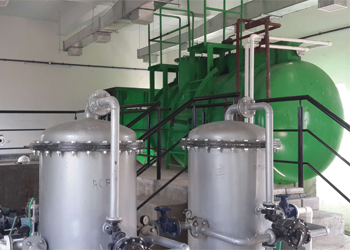
-
-
CALL US NOW
+91 78600 24711

To counter this, companies are turning to Sewage Treatment Plants (STP) as an effective solution. For hospitals, factories, and other industrial facilities, an STP plant not only manages wastewater but also supports water conservation in impactful ways. Thermodynamic Services offers top-of-the-line STP plants for hospitals, helping these facilities meet their water needs responsibly and cost-effectively.
Water conservation has become essential in sectors like healthcare and manufacturing. Hospitals alone generate large volumes of wastewater, not only from patient care but also from daily operations. Here’s why STP plants play a critical role:
Industries that adopt STP plants experience environmental and financial benefits while meeting government regulations on wastewater management.
For healthcare facilities, STP plants offer multiple advantages beyond water conservation. Hospitals benefit greatly from a robust STP plant for hospitals, as they face unique challenges with high water usage and strict regulatory standards. Thermodynamic Services' STP plants are specifically designed to handle the demands of these settings. Here’s how:
The World Health Organization estimates that water treatment technologies can reduce water-related diseases by up to 25%. An STP plant for hospitals does just that by managing wastewater efficiently and recycling it for non-consumption uses.
Thermodynamic Services offers custom-designed STP plants specifically for hospitals and industrial applications. With our expert engineers, we ensure each plant meets high standards for quality, efficiency, and sustainability. Here’s what sets our STP plants apart:
An STP plant is an investment that pays off through reduced water bills, environmental impact, and compliance with government regulations. In a world where water resources are limited, STP plants are essential, especially for high-demand settings like hospitals and large industries.
The future of industrial water management is here, and it’s more sustainable than ever. Thermodynamic Services is dedicated to providing reliable and efficient STP plants for hospitals and industries, helping you conserve water, cut costs, and promote environmental responsibility. Reach out to us today to learn more about how our STP plants can support your facility’s water needs, reduce your ecological footprint, and ensure a greener tomorrow.